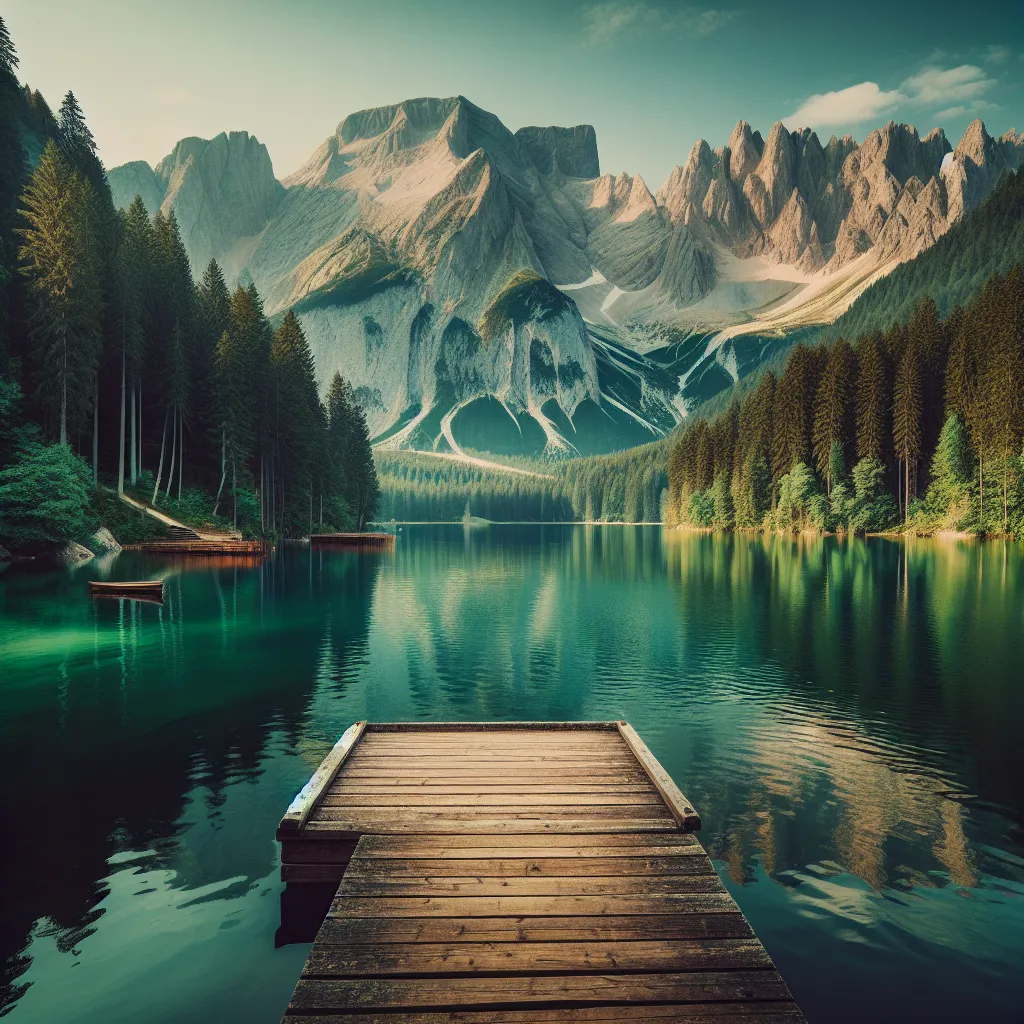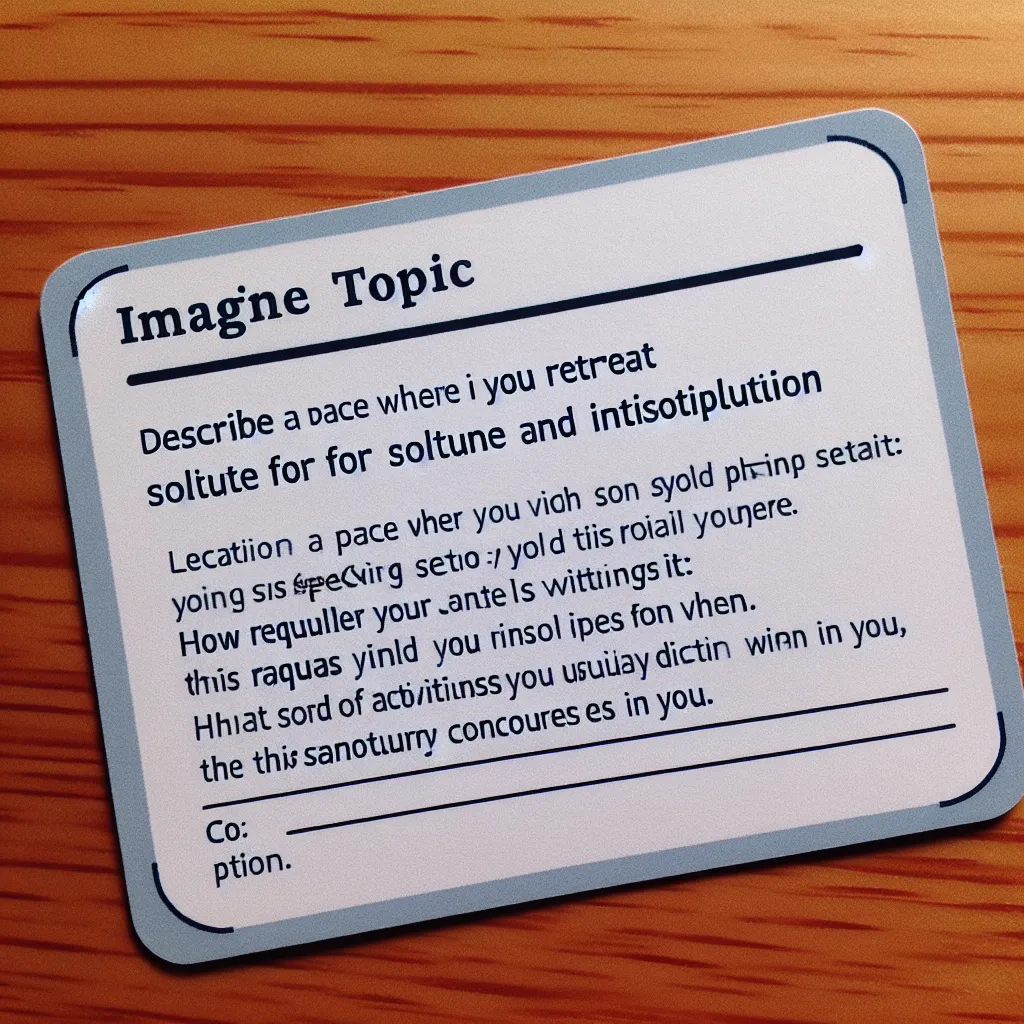The IELTS Speaking test often includes questions about places we like to visit for relaxation. This topic is a common one, appearing frequently in past exams and likely to continue in future tests. As an experienced IELTS examiner, I’ll guide you through answering questions related to “Describe a place where you like to go for relaxation” effectively.
Nội dung bài viết
Part 1: Introduction and Interview
In this section, the examiner may ask questions like:
- Do you prefer to relax indoors or outdoors?
- How often do you take time to relax?
- What activities do you find relaxing?
Let’s look at a sample answer for the first question:
Examiner: Do you prefer to relax indoors or outdoors?
Sample answer (Band 7-8):
“I’d say I’m more inclined towards outdoor relaxation. There’s something invigorating about being in nature that really helps me unwind. Whether it’s a quiet park or a scenic beach, the fresh air and natural surroundings work wonders for my stress levels. That being said, I do appreciate the comfort of relaxing indoors on rainy days or when I’m feeling particularly tired.”
Part 2: Long Turn
In this section, you’ll receive a cue card with a topic and questions to guide your 2-minute speech. Here’s a sample cue card:
Describe a place where you like to go for relaxation
You should say:
- Where this place is
- How often you go there
- What you do there
- And explain why you find it relaxing
 Serene lakeside retreat
Serene lakeside retreat
Sample answer (Band 7-8):
“I’d like to talk about a serene lakeside spot that I frequently visit for relaxation. This picturesque location is nestled in a small nature reserve about a 30-minute drive from my home. It’s a hidden gem that not many people know about, which adds to its appeal.
I try to make it out there at least once a month, usually on weekends when I need to recharge my batteries after a hectic work week. Sometimes, if I’m feeling particularly stressed, I might go more often.
When I’m there, I engage in various activities that help me unwind. Often, I’ll simply sit on the shore, basking in the tranquility of the surroundings. The gentle lapping of the water against the shore acts as a natural stress-buster. I also enjoy taking leisurely walks around the lake, observing the local wildlife and taking in the breathtaking scenery.
What makes this place so relaxing for me is its serene atmosphere and connection to nature. The absence of city noise and the abundance of greenery create a perfect environment for clearing my mind. The lake itself has a calming effect – there’s something about water that I find incredibly soothing. Moreover, the fact that it’s relatively unknown means it’s never crowded, allowing me to enjoy the peace and quiet without interruption.
In essence, this lakeside retreat serves as my personal sanctuary, a place where I can escape the hustle and bustle of daily life and find inner peace. It’s my go-to spot whenever I need to decompress and find my center.”
Follow-up questions:
- Do you prefer to relax alone or with others?
- How has your idea of relaxation changed over the years?
Sample answer for question 1 (Band 8-9):
“I find that my preference for solitary or social relaxation varies depending on the circumstances. When I’m feeling particularly overwhelmed or need to introspect, I tend to gravitate towards solitude. The peace and quiet allow me to process my thoughts more effectively and recharge my emotional batteries.
However, there are times when relaxing with others can be incredibly rejuvenating. Sharing a laugh with close friends or engaging in meaningful conversations can be a wonderful way to alleviate stress. It’s all about striking a balance and recognizing what type of relaxation I need at any given moment.
Ultimately, I believe that cultivating a mix of both solitary and social relaxation activities is crucial for maintaining overall well-being. It’s about being attuned to your own needs and having the flexibility to choose the most appropriate form of relaxation for each situation.”
Part 3: Two-way Discussion
In this section, the examiner will ask more abstract questions related to the topic. Here’s an example:
Examiner: How do you think the concept of relaxation differs between generations?
Sample answer (Band 8-9):
“That’s an intriguing question that touches on both societal changes and generational differences. I believe the concept of relaxation has evolved significantly across generations, primarily due to technological advancements and shifting societal norms.
For older generations, relaxation often meant disconnecting from work and daily responsibilities in a more literal sense. This might have involved activities like reading a book, gardening, or simply sitting on the porch. There was a clear delineation between work and leisure time.
In contrast, younger generations, particularly millennials and Gen Z, have grown up in an always-connected world. For them, relaxation might paradoxically involve using technology – perhaps scrolling through social media, playing video games, or binge-watching series on streaming platforms. The line between work and leisure has become increasingly blurred.
However, we’re also seeing a countertrend among younger people, with many seeking out ‘digital detoxes’ and embracing more traditional forms of relaxation like meditation or nature retreats. This could be interpreted as a reaction to the constant stimulation of modern life.
Interestingly, the COVID-19 pandemic has further complicated this generational divide. Many people, regardless of age, have had to reassess their relaxation habits due to lockdowns and social distancing measures. This has led to a convergence of relaxation methods across generations, with more people of all ages turning to activities like home gardening, baking, or online yoga classes.
In conclusion, while there are certainly generational differences in approaches to relaxation, I believe we’re seeing an increasing recognition across all age groups of the importance of finding effective ways to unwind in our fast-paced, technology-driven world.”
Key Vocabulary and Phrases for High Scores
-
Serene (adjective) /sɪˈriːn/ – calm, peaceful, and untroubled
Example: The serene atmosphere of the lake helps me relax. -
Rejuvenate (verb) /rɪˈdʒuːvəneɪt/ – to give new energy or vigor to; revitalize
Example: A weekend in nature always rejuvenates my spirit. -
Unwind (verb) /ʌnˈwaɪnd/ – to relax after a period of work or tension
Example: I like to unwind by taking a long bath after a stressful day. -
Sanctuary (noun) /ˈsæŋktʃueri/ – a place of refuge or safety
Example: The park is my sanctuary away from the busy city life. -
Introspect (verb) /ˌɪntrəˈspekt/ – to examine one’s own thoughts and feelings
Example: I often visit the lake to introspect and gain clarity.
Tips from an IELTS Examiner
- Practice speaking about different relaxation spots to improve fluency.
- Use a variety of descriptive language to paint a vivid picture for the examiner.
- Incorporate personal anecdotes to make your answers more engaging and authentic.
- Be prepared to discuss relaxation from various angles, including its importance in modern society.
- Remember to maintain good eye contact and use natural gestures to enhance your communication.
By following these guidelines and practicing regularly, you’ll be well-prepared to tackle questions about relaxation spots in your IELTS Speaking test. Remember, the key is to speak naturally and confidently while showcasing your English language skills.
For more tips on how to excel in your IELTS Speaking test, check out our guide on how to describe a place where you go to escape from everyday life.


